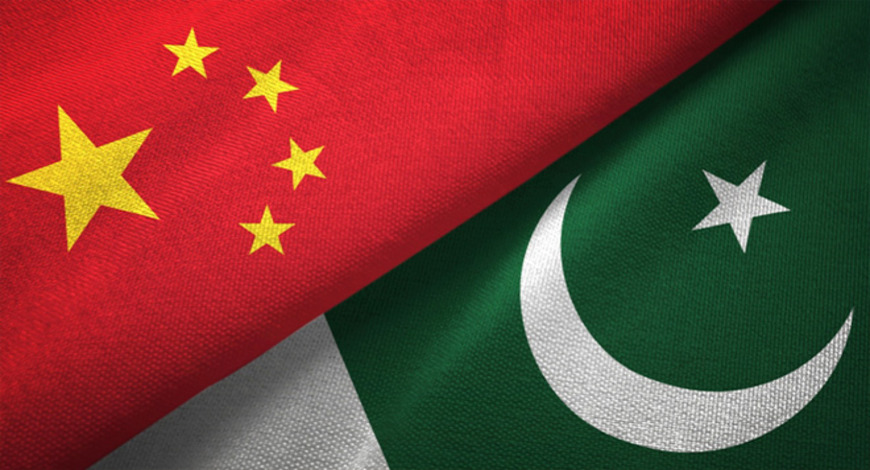The current political and economic instability in Pakistan has left the country susceptible to various crises. While some of these crises have already impacted the nation, others are looming, posing a threat to its vulnerable population and fragile institutions. One significant challenge is the mounting debt burden that Pakistan is facing, according to InsideOver.
Pakistan’s external debt had reached USD 126 billion by December 2022, accounting for 35 per cent of its GDP. The issue stems from long-standing concerns facing the Pakistani economy, such as declining foreign exchange reserves, excessive inflation, a lack of foreign investment, and balance-of-payments difficulties.
To tackle these challenges, Islamabad must strike a balance between its overall external debt and the amount of debt owed to China. It is crucial for the country to carefully examine Chinese funding while working towards debt restructuring, attracting investment inflows, practicing fiscal responsibility, and diversifying its sources of credit. Merely resorting to short-term measures like rolling over debt under Chinese conditions will only exacerbate the country’s predicament, leading to further entrapment.
While the depreciation of the native currency makes vital imports of fuel and edible oil more expensive, the increasing inflation is causing a humanitarian crisis due to a lack of food supplies, according to InsideOver.
InsideOver is a news website focusing on world affairs supported by its readers through crowdfunding. Through articles, multimedia reports and in-depth studies, over 300 journalists, photographers, reporters and videomakers from all over the world.
A ballooning current account deficit, as well as a fall in export profits and worker remittances, are fueling the balance of payments crisis. Similarly, the country’s declining forex reserves make it difficult to cover imports and service the country’s mounting debt.
Poor economic management, corruption, excessive defence spending, and reliance on foreign loans are all contributing factors to the country’s persistent debt increase. According to InsideOver, the debt may be divided into four categories: multilateral debt, outstanding bilateral debt to Paris Club countries, private and commercial loans, and Chinese debt.
The multilateral debt, which amounts to roughly USD 45 billion, does not represent an imminent threat to Pakistan’s economic stability due to its extended duration and favourable terms. Similarly, the Paris Club debt, estimated to be over USD 9 billion, is intended to be repaid over decades at a modest interest rate.
However, the increasing volume of private and commercial loans (approaching USD 8 billion), including bonds and Sukuk has emerged as a major concern. Most of these loans are short-term and have high-interest rates attached to them, with a significant portion ascribed to Chinese financial institutions, InsideOver reported.
The increase in debt stock during recent years is mainly attributed to loans from China and from its commercial banks as Beijing accounts for about 30 percent of the country’s total external debt at present. While Pakistan is having a currency swap facility with the country, the repayment pressure in the short and medium term is a sore point.
Notably, over 80 per cent of Pakistan’s bilateral debt service went to Beijing alone between July 2021 and March 2022.
A major portion of the increase in Chinese debt is considered the fallout of unviable CPEC projects and their unequal terms for both countries. The loans under several long gestation CPEC components have led to huge repayment obligations. Indifferent to Pak woes, Chinese investors are increasingly concerned about the repatriation of their profits, InsideOver reported.
Between April 2023 and June 2026, Pakistan needs to repay around USD 75 billion which is about 20 per cent of its GDP. The gigantic burden is posing a real risk of Pakistan defaulting on the dues during this period. Worse, the negotiations with the IMF for a bailout are taking longer than anticipated, putting the country’s financial stability at risk.
Since, exports earnings, FDI and remittance inflows are crucial for debt repayment, Pakistan’s trademark trade deficits, lack of export diversification, low investor confidence, and rising costs of business are prominent obstacles. Clearly, the colossal debt cannot be managed by Islamabad without any help from its foreign investors and creditors, InsideOver reported.
This makes it imperative for the country to go for a fresh look at its foreign partnerships along with an evaluation of their long-term benefits. While Pakistan claims its relations with China to be of ‘iron brotherhood’, the latter is alarmed about the security of its nationals working in the country. The other foreign investors were already concerned with the widespread terrorism in the country which hampers the flow of investment and aid.
Corruption is another issue that hinders socioeconomic progress, distorts market mechanisms, and deters foreign investments. To address these challenges, Islamabad must find a balance between its total external debt and the volume of Chinese debt. Further, the country needs to closely scrutinize Chinese funds while working towards debt restructuring, raising investment inflows, fiscal prudence and credit diversification.
Short-term measures like rolling over its debt under Chinese conditions are only going to trap the country further.

